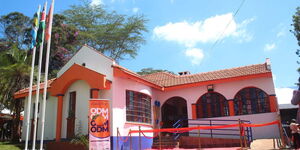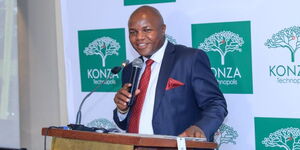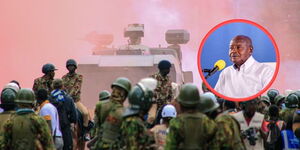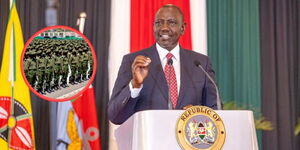Political aspirants in the upcoming 2022 General election will spend as much money as they want after the Independent Electoral and Boundaries Commission (IEBC) abolished the campaign spending limit.
During an interview on a local TV station on Tuesday, October 13, IEBC commissioner, Boya Molu, confirmed that the commission had degazetted the campaign spending limit notice through a gazette notice dated October 8.
Molu stated that they had faced various challenges in pushing their proposals, explaining that their decision was informed by the dismissal of the campaign financing rules by Members of Parliament.
“By default, the gazettement of limits becomes null and void. That is why we (IEBC) degazetted it and that is because the commission cannot implement a law that doesn’t exist," he explained.
The commissioner also expressed that IEBC was concerned that the abolishment would affect the credibility of the 2022 General election, claiming that politicians tend to use loopholes in the law to their advantage.
He also added that they would engage with relevant stakeholders in the future to ensure that they do not face the same challenges in 2027.
“People have unlimited freedom to spend money. Unfortunately, money will play a bigger role than ideas. There is no regulation which means political parties and candidates will spend all their money unregulated,” he expressed.
In their earlier proposals, presidential candidates would have been limited to spend a maximum of Ksh4.4 Billion during their campaigns. The spending limits for other positions such as the gubernatorial, senatorial, and woman representative varied across the 47 counties.
According to the funding limits, aspirants in Turkana and Nairobi counties would have been the highest spenders. For example, aspirants in Turkana were limited to spend to a maximum of Ksh123 million.
On the other hand, counties such as Lamu, Vihiga, and Nyamira were among the counties where aspirants would have spent the least amount of money. In Lamu, a gubernatorial aspirant would have spent a maximum of Ksh21 million during the campaign.
The funding limit was developed based on the population of a given area and its size.
Additionally, the abolishment of the campaign spending limit also affects well-wishers who support aspirants and political parties through contributions. With the abolishment, they will also be allowed to contribute as much as they want.
On Tuesday, August 10, lawmakers opposed the campaign financing rules stating that the electoral body submitted their proposals late. National Assembly Minority Whip, Junet Mohammed, stated that limitations would affect various aspirants because most of the political parties had already developed a roadmap for their campaigns.
“The electoral commission was aware that the next General Election was to be held on August 9, 2022. They were aware that people would campaign and they need money. They were also aware that they needed to submit the regulations to Parliament for approval. Why wait until the last day?” Junet argued.
In the 2010 constitution, IEBC is mandated to regulate the amount of money that is spent by politicians during their campaigns.












